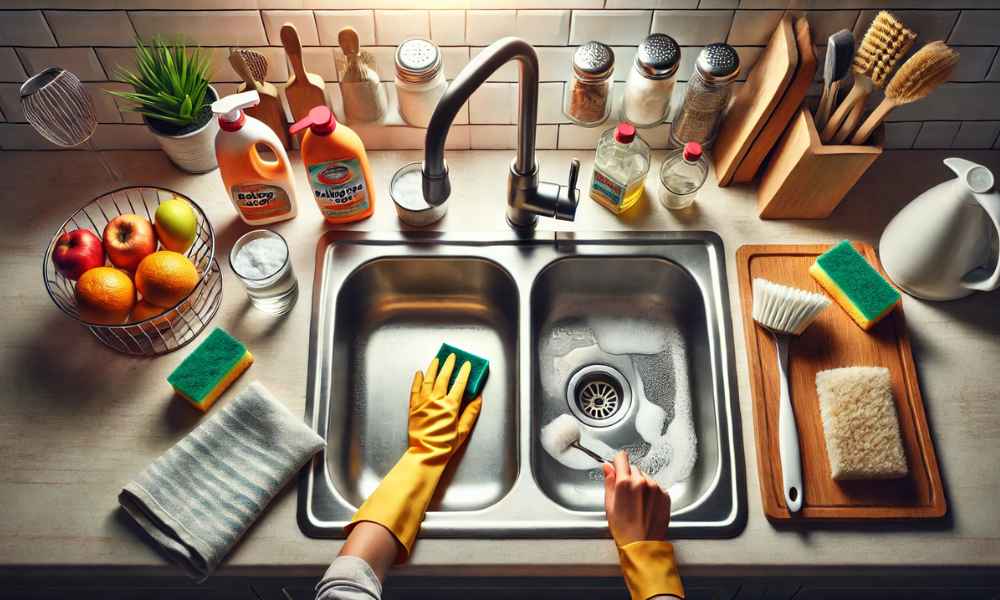A greasy sink isn’t just an eyesore—it’s a problem that can lead to clogged pipes, unpleasant odors, and even plumbing issues if left unchecked. Every home cook has encountered that stubborn, oily residue that refuses to budge, no matter how much elbow grease you apply. But fear not, removing grease from your sink doesn’t have to be a monumental task. With the right methods and a sprinkle of patience, you can restore your sink to its gleaming state. Let’s dive into practical and efficient solutions that tackle adipose while keeping your kitchen fresh and functional.
Understanding the Problem
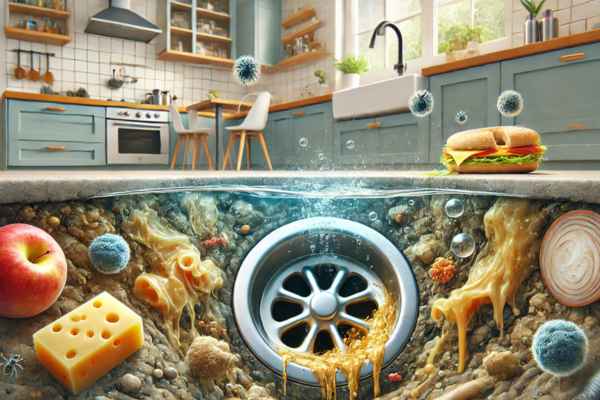
Grease accumulation occurs when oils and fats cool and solidify in the drain. Over time, these substances bind with debris, creating blockages that impede water flow. This isn’t just a minor inconvenience; it can lead to expensive plumbing repairs if neglected. Moreover, the greasy film left behind often traps food particles, inviting bacteria and unpleasant smells to linger in your kitchen. Understanding the nature of adipose buildup helps you tackle the problem more effectively and take preventive measures.
Essential Supplies You’ll Need
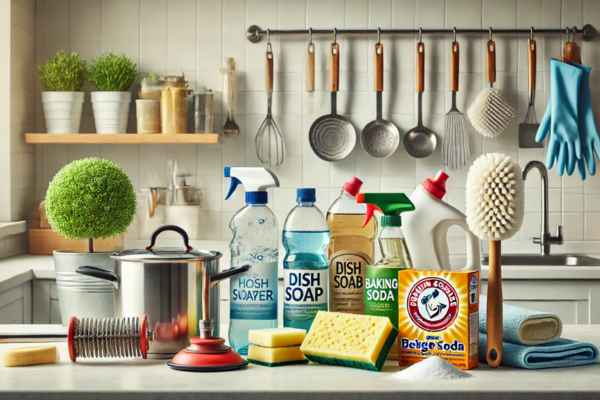
Before diving into the cleaning process, it’s essential to gather the right tools and materials. Hot water, dish soap, and a sturdy sponge are kitchen staples you likely already own. For natural cleaning methods, stock up on baking soda, vinegar, and coarse salt. If you prefer commercial solutions, look for eco-friendly degreasers that are safe for your pipes and the environment. A sturdy plunger or a plumber’s snake may also come in handy for stubborn clogs.
The Power of Hot Water and Dish Soap
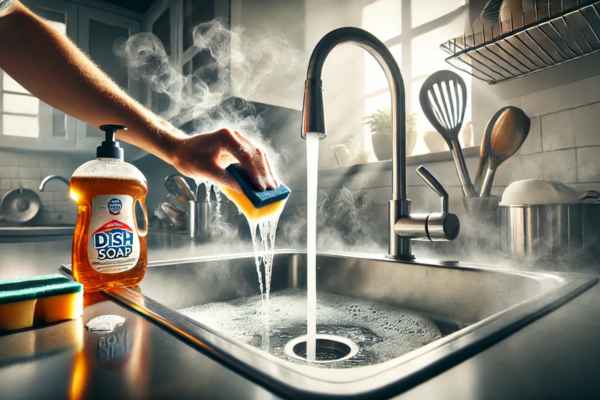
Sometimes, simplicity is the key to solving a problem. Hot water and dish soap work wonders in breaking down grease, thanks to their ability to emulsify fats. Start by running hot water into the sink to loosen the adipose. Then, add a generous squirt of dish soap, letting its degreasing agents work their magic. Scrub the sink using a sponge or brush, ensuring you reach every corner. Finally, rinse with more hot water to flush away the loosened grease. It’s a straightforward yet powerful solution that works best for light adipose buildup.
Baking Soda and Vinegar: A Natural Solution
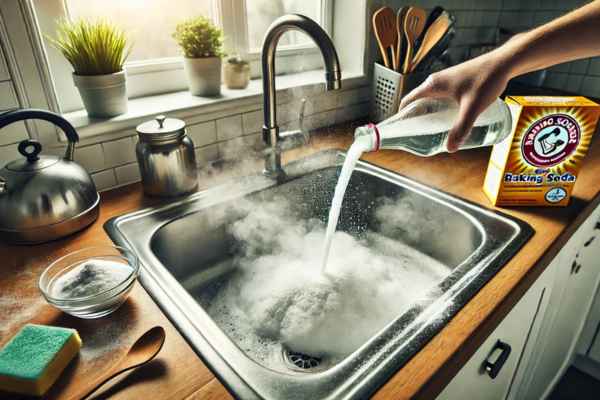
For those who prefer eco-friendly cleaning methods, baking soda and vinegar offer a tried-and-true remedy. Sprinkle baking soda generously over the greasy surface, then pour vinegar over it to create a fizzing reaction. This chemical process helps break down stubborn grease while deodorizing your sink. Allow the mixture to sit for 10–15 minutes before scrubbing and rinsing with hot water. Not only is this method effective, but it’s also safe for your plumbing and the environment.
Salt and Boiling Water for Stubborn Grease
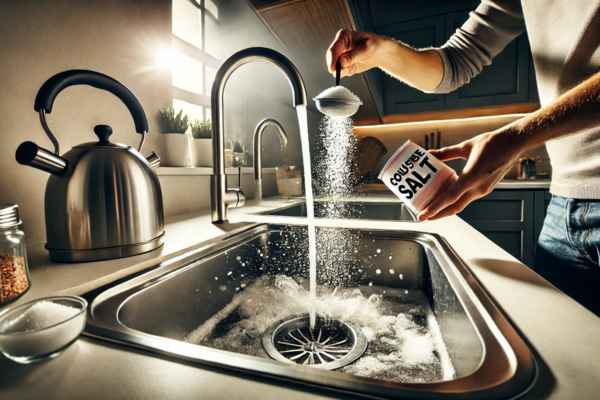
Grease refuses to budge, salt and boiling water can come to the rescue. Salt acts as an abrasive scrub that dislodges adipose from surfaces and drains, while boiling water helps dissolve it. Sprinkle a handful of coarse salt down the drain, followed by a kettle of boiling water. The combination works to break down stubborn grease clogs, leaving your pipes cleaner and more efficient. Repeat this process as necessary for optimal results.
Degreasers and Specialized Cleaners
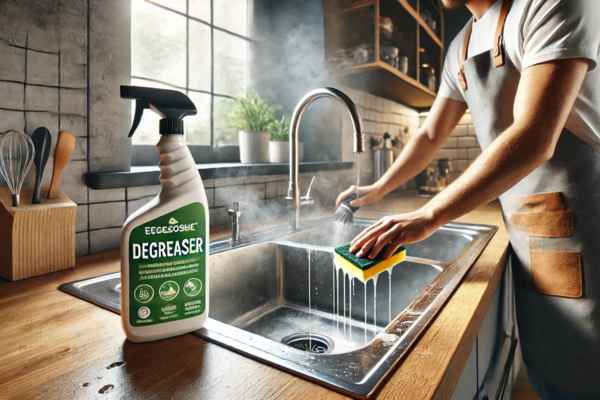
Natural methods don’t suffice, it may be time to turn to specialized degreasers. These commercial products are formulated to cut through tough adipose with ease. Choose a cleaner that’s safe for your sink’s material, whether it’s stainless steel, porcelain, or composite. Follow the manufacturer’s instructions carefully to avoid damaging your sink or pipes. For an eco-conscious approach, consider biodegradable degreasers that minimize environmental impact.
Homemade Grease-Busting Recipes
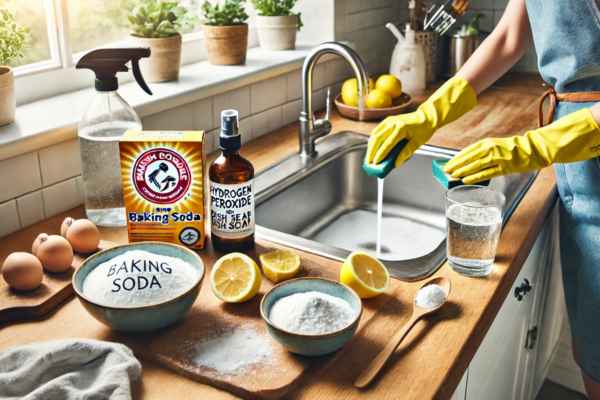
You’re a fan of DIY solutions, there are plenty of homemade recipes that work wonders on grease. A mixture of lemon juice and baking soda creates a powerful paste that not only cuts through adipose but also leaves your sink smelling fresh. Alternatively, combine equal parts of hydrogen peroxide and dish soap for a potent degreasing spray. These recipes are easy to make, cost-effective, and free from harsh chemicals.
Preventing Grease Build-Up
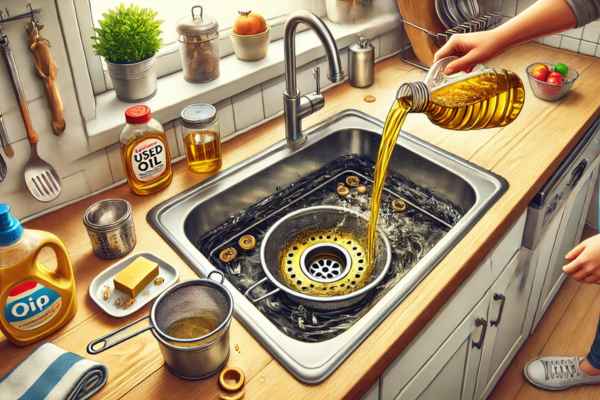
Prevention is always better than cure. To keep grease from accumulating in the first place, adopt habits that minimize its entry into your sink. Never pour cooking oils or fats directly down the drain; instead, collect them in a container for disposal. Use a sink strainer to catch food particles and other debris. Regularly flush your drain with hot water and a bit of dish soap to maintain its cleanliness. Small, consistent efforts can save you from the hassle of dealing with stubborn adipose in the future.
The Role of Drain Maintenance
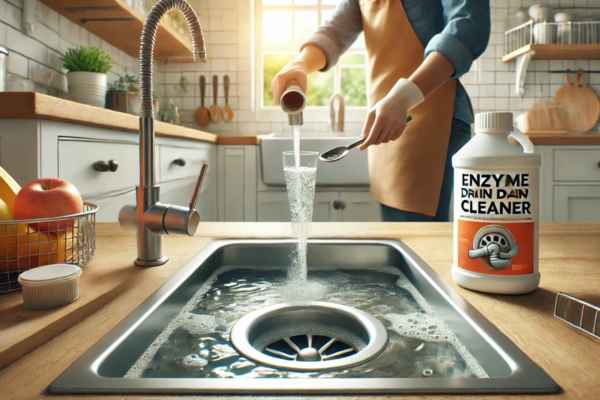
Regular drain maintenance is crucial for preventing grease buildup and maintaining a healthy plumbing system. Over time, even small amounts of grease can accumulate, creating blockages that restrict water flow. To avoid this, establish a routine of flushing your sink with hot water mixed with dish soap weekly. Consider using enzyme-based drain cleaners periodically; these natural products break down organic material without harming your pipes. Additionally, inspect your sink and drain for early signs of clogging, such as slow drainage or gurgling sounds, and address them promptly.
When to Call a Professional

Despite your best efforts, there may come a time when grease clogs are too severe for DIY solutions. If water backs up or drains painfully slowly despite your interventions, it’s time to call a plumber. Professionals have specialized tools, like hydro-jetting equipment, to clear stubborn clogs and inspect your pipes for damage. Regular maintenance appointments with a plumber can also help identify and resolve potential issues before they escalate, saving you time and money in the long run.
Eco-Friendly Practices for Grease Removal
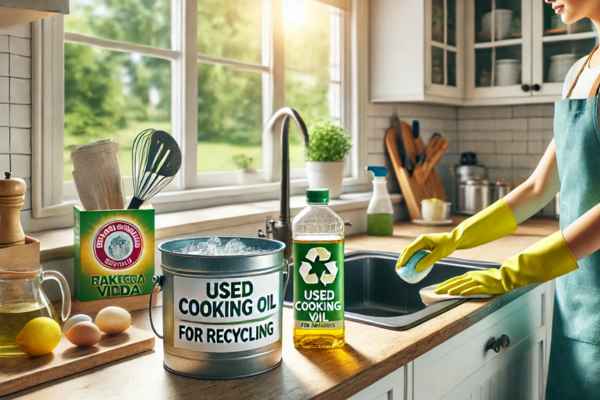
Reducing your environmental footprint while tackling grease is entirely possible with the right methods. Opt for natural cleaners like baking soda, vinegar, and lemon juice, which are biodegradable and safe for waterways. Avoid using harsh chemical cleaners that can damage your pipes and harm aquatic ecosystems. Properly dispose of adipose and cooking oils by collecting them in a container and recycling them, if possible. Some communities even offer grease recycling programs, which repurpose used fats into biodiesel or other products.
Common Mistakes to Avoid
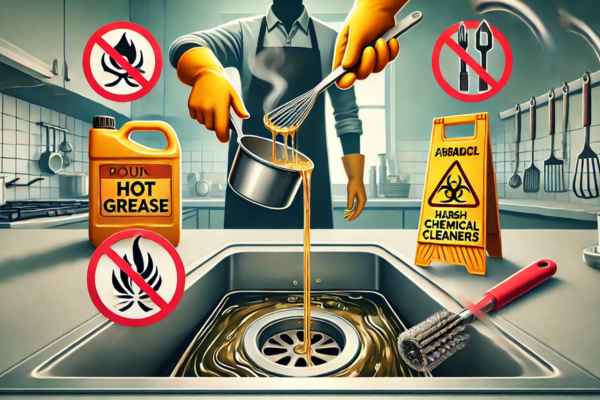
Many well-intentioned homeowners make mistakes that worsen grease problems. Pouring hot grease directly down the drain is a common misstep that leads to rapid solidification and clogs. Similarly, using harsh chemical cleaners excessively can corrode your pipes and create long-term damage. Avoid neglecting regular maintenance, as small buildups can snowball into significant issues. Finally, resist the urge to use abrasive tools that could scratch your skin’s surface or damage the drain.
Can grease damage my pipes?
Yes, grease can cause significant damage to your pipes over time. When grease cools, it solidifies and adheres to the pipe walls, gradually narrowing the passage for water flow. This not only leads to clogs but also increases the pressure within your plumbing system, which can result in leaks or bursts. Proactively addressing grease buildup and adopting preventive measures can help protect your pipes from costly repairs.
What is the best way to dispose of used cooking oil?
Disposing of cooking oil properly is essential to prevent grease-related plumbing issues. Never pour oil down the sink or toilet, as it can solidify and cause blockages. Instead, let the oil cool and transfer it into a sealed container, such as a glass jar or plastic bottle. You can then dispose of it in the trash or take it to a recycling facility that accepts cooking oil. Many areas offer adipose recycling programs, which convert used oil into biodiesel or other sustainable products.
Are chemical cleaners safe for my sink and plumbing?
While chemical cleaners are effective at breaking down clogs, their safety depends on usage and the type of plumbing in your home. Overusing these products can corrode metal pipes or damage plastic ones, especially older systems. Additionally, the harsh chemicals can be harmful to the environment when washed down the drain. If you must use chemical cleaners, choose biodegradable and pipe-safe options, and follow the manufacturer’s instructions to minimize risks.
Conclusion
A grease-free sink isn’t just about aesthetics—it’s about protecting your plumbing, ensuring smooth drainage, and maintaining a hygienic kitchen. By understanding the causes of adipose buildup and employing effective cleaning methods, you can tackle the problem head-on. From natural solutions like baking soda and vinegar to preventive measures such as proper grease disposal, small changes can make a big difference. And when DIY efforts fall short, don’t hesitate to call in the professionals. With a combination of regular maintenance and eco-friendly practices, you can keep your sink sparkling and your pipes in excellent condition for years to come.
